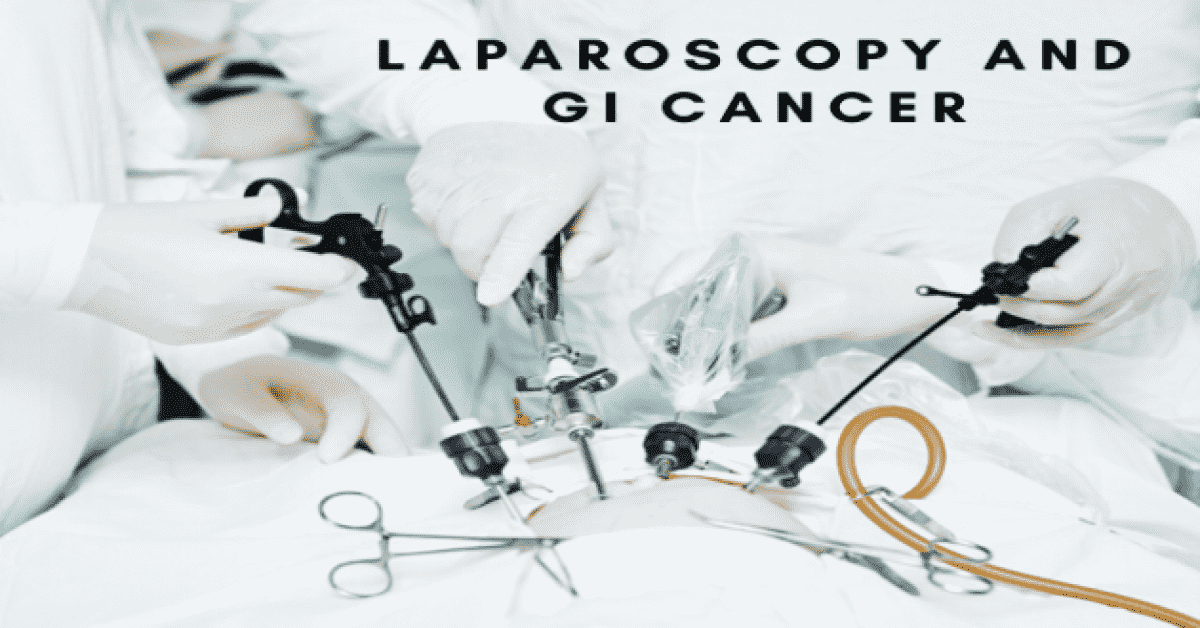Laparoscopy & Gi Cancer: The Need For A Surgical Gastroenter

Laparoscopic surgeries have many benefits including reduced chances of infection and faster recovery.
With the advancement in the medical field, laparoscopic surgeries are becoming more common than ever. Laparoscopy is also called minimally-invasive surgery, or key-hole surgery. It is a modern technique that allows the medical experts to examine the insides of your abdomen without the need for traditional, open surgery.
A laparoscopy involves a surgical procedure with a fiber-optic instrument. The laparoscope is a long tube with a high-intensity light and high-resolution camera at the end. It is inserted into the abdominal walls of the patient to examine the inside of the abdomen. The camera sends images to the monitor and allows the surgical gastroenterologist to see the inner workings of your abdomen. Laparoscopy can be used for diagnostics purposes as well as surgical treatment. So, whether it is to diagnose an illness accurately, take biopsies to confirm the existence of cancerous tumors, or remove organs in the stomach, laparoscopic surgeries can prove to be very useful.
What Kind of Operations can be performed using the Laparoscopic Technique?
Laparoscopy is used for treating ailments of the following: gallbladder, common bile duct, appendix, small intestine, large intestine (colon), spleen, pancreas, liver, stomach, rectum, reproductive system, etc.
A large number of intestinal surgeries can be performed with the help of a laparoscope.
- Cholecystectomy to remove the gallbladder
- CBD (Common Bile Duct) Exploration for bile duct stones
- Hernia surgery
- Appendectomy (Appendix Removal)
- Bariatric surgery
- Gastric bypass
- Surgical Treatment for Hydatid liver disease
- Liver Tumor Surgery
- Distal Pancreatectomy
- Treatment for Crohn’s disease, Ulcerative Colitis, Diverticulitis, Rectal Prolapse
- Laparoscopic surgery for GI cancer, etc.
How can Laparoscopy help with GI Cancer?
GI cancer includes a cluster of cancers that affect the gastrointestinal tract in the body. So, the cancerous tumor that is visible in the esophagus, stomach, biliary system, pancreas, small intestine, large intestine, rectum, and anus, comes under gastrointestinal cancer.
As laparoscopy offers multiple benefits in the form of reduced chances of infection, decreased need for pain medication, shorter recovery time, etc., its popularity has skyrocketed in recent years. There is a concern about the increasing use of minimally-invasive surgery to treat a variety of diseases and undertake several medical procedures.
When it comes to diagnosing GI cancer, you need the help of an expert GI surgeon/surgical gastroenterologist. Not everyone can undertake the responsibility of laparoscopic surgery because it requires special knowledge, expertise, and adequate training.
When curative surgeries for GI cancer are administered, the purpose is to remove all malignant (cancerous) tissues from the body and cure the patient, it includes removing a part or all of the organ affected by the disease. The primary motive is to ensure that patient is tumor-free, whether by conventional open surgery or laparoscopy. And, a doctor should not lose focus of it.
It is important to understand that every GI cancer patient cannot be cleared for a laparoscopy. Before choosing a surgical technique for the patients, a thorough analysis of the patient’s condition and several other tests such as blood tests, urinalysis, ECG, chest X-ray, CT scan, ultrasound, and MRI may become necessary. The tests will help the GI surgeon understand what kind of abnormalities to examine during the laparoscopic surgery.
So, the key is the proper selection of the patient and a thorough understanding of his condition. The doctor should not compromise radicality just to conduct the minimally-invasive surgery. Otherwise, it can lead to tumor recurrence and poor survival rates.
If you are suffering from GI cancer, it is essential to visit the best surgical gastroenterologist. Seek treatment from Dr. Jay Chokshi, South Gujarat's First National Board Certified HPB, GI Surgeon, and Advanced Laparoscopic Surgeon.


